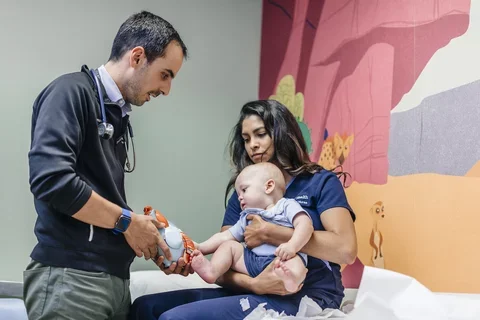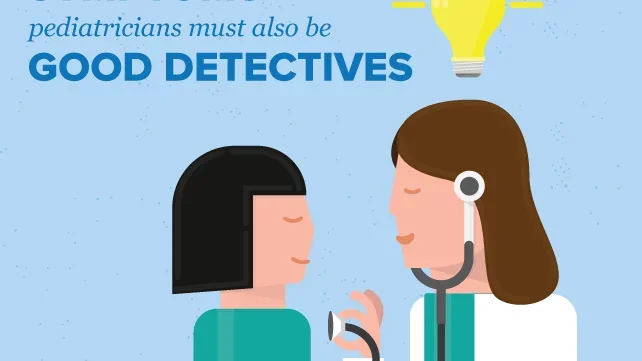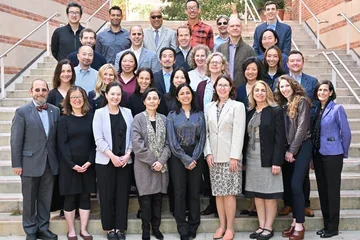Is Being a Pediatrician Hard?
3 Challenges Pediatricians Face

Being a Pediatrician Is Rewarding and Challenging Work. But How Do You Overcome the Unique Challenges That Come With the Job?
Despite a patient population of babies and toddlers, being a pediatrician isn't all fun and games. Jessica Lloyd, MD, a pediatric hospitalist who knew she wanted to work with kids since she was a kid, loves her job and can't imagine doing anything else. But while her career is rewarding, she says it's not for the "faint of heart." Here, she discusses challenges pediatricians face and shares her strategies for overcoming them.
(Interested in Becoming a Pediatrician? Click the link to learn more...)
Managing the Family Unit
Parents whose children are sick enough to be hospitalized are often stressed out, sleep deprived and understandably emotional. This frustration can lead to tense conversations with pediatricians.
Dr. Lloyd says empathy and strong communication skills are important in these situations. "Doctors have to remember that when parents voice frustration, it's because they're worried and scared," she explains. "If a parent is angry, pediatricians must take a step back, consider how stressful his or her life is and not take it personally."
Treating sick children is a team effort, says Dr. Lloyd, which means everyone needs to be on the same page. "Everybody involved has the best interest of the child in mind. Together we need to decide what's going on, how to best treat the child and how to implement that plan. Often that means starting over — sitting down with the family and involving social workers and bedside nurses to clear up any misunderstandings and move forward."
(Tips on Talking to Your Pediatric Patients. Click the link to learn more...)
Solving Medical Mysteries

When treating young or developmentally delayed patients who can't explain their symptoms, pediatricians must also be good detectives.
"Maybe you have a 2-year-old child complaining of some vague abdominal pain," says Dr. Lloyd. "Sometimes it's hard to distinguish between gastroenteritis, appendicitis or some other ailment. So you have to rely on your clinical skills."
This means performing thorough physical exams, which can be challenging with small children. "You learn certain tricks of distraction. I have been lucky to learn from wonderful role models at UCLA," she says.
The best diagnostic tool is often chatting with the parents. "They know their children better than anyone," she says. "When they say, 'This behavior is unusual,' a red flag should go off in your head. If they say, 'He always complains of tummy pain when he doesn't want to go to sleep,' the red flags don't go off as much."
(A Quick Look at Pediatric Subspecialities. Click the link to learn more...)
Dealing With Emotional Trauma
One of the toughest challenges pediatricians face is seeing children and their families suffer, in addition to losing young patients. "It can be devastating," says Dr. Lloyd. "But you have to be the best pediatrician you can while understanding that not everything is in your control. Bad health outcomes unfortunately do happen to children. You have to find ways to process that and still have a good attitude so you can care for the next child and family."
Dr. Lloyd admits this is an ongoing struggle, and says good relationships with other pediatricians are her greatest comfort. "Talking a lot and getting support from each other is so important," she says. "That's probably the number one thing we all do to process."
In a similar vein, Dr. Lloyd recently partnered with Brenda Bursch, PhD, a professor of psychiatry and pediatrics at the David Geffen School of Medicine at UCLA, to create a resiliency program for pediatric residents. "We adapted a training model the military uses, the FOCUS Project, that was originally developed at UCLA. I learned several tools that help to be resilient in face of trauma and sadness, such as inspirational goal-setting and using narrative storytelling to debrief after something sad happens. We are really excited to teach residents these skills so they can start using them earlier in their careers."
(A Day in the Life of a UCLA Pediatrician. Click the link to learn more...)



